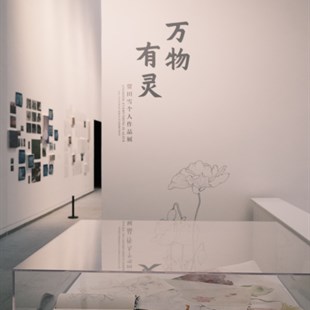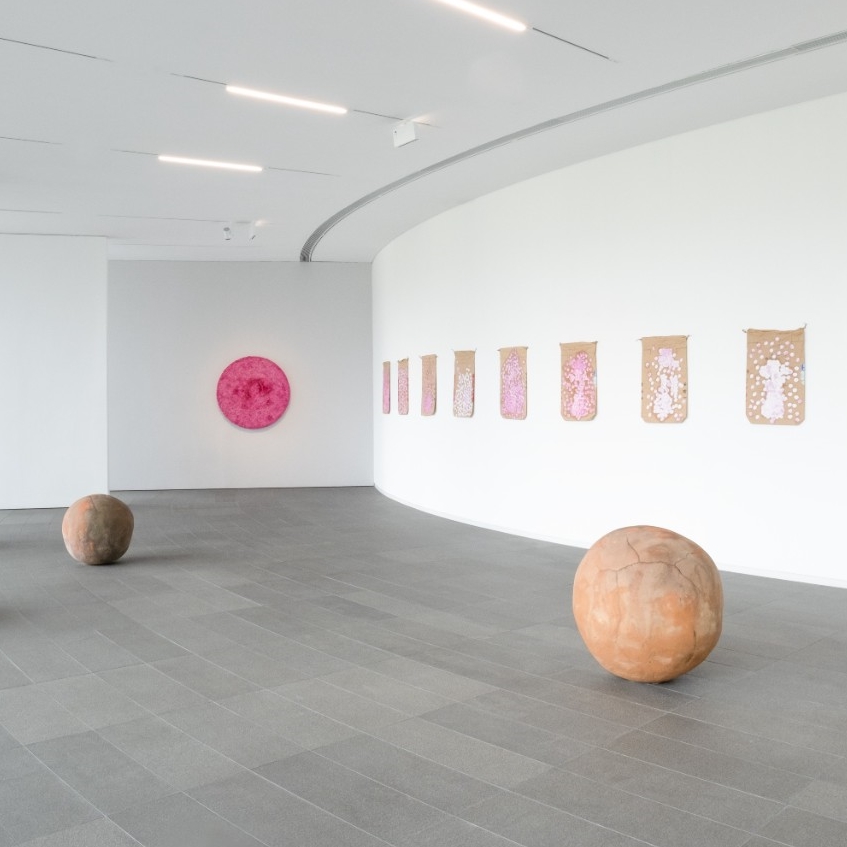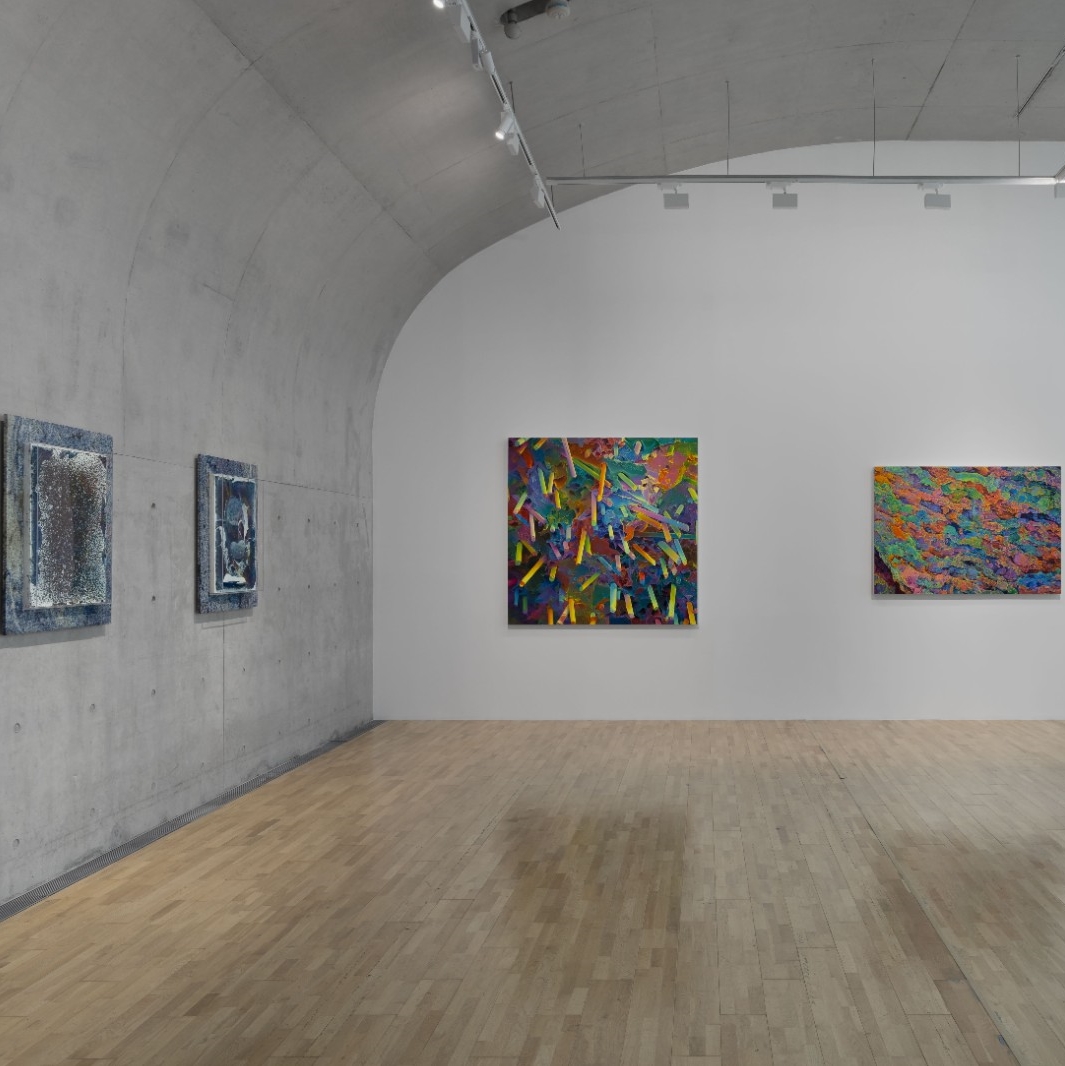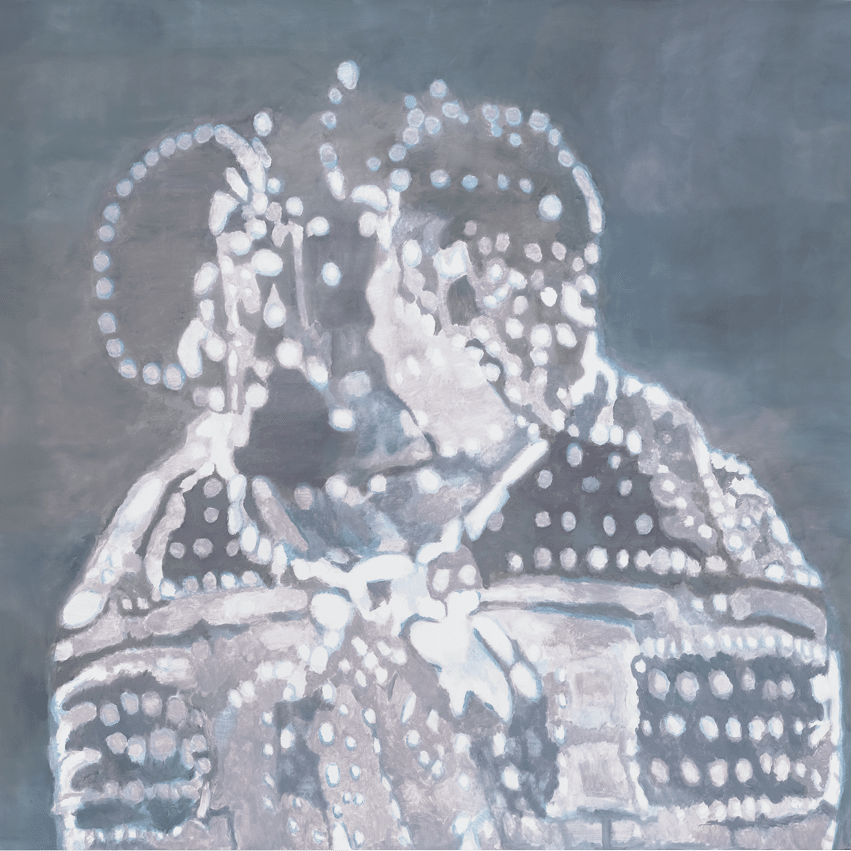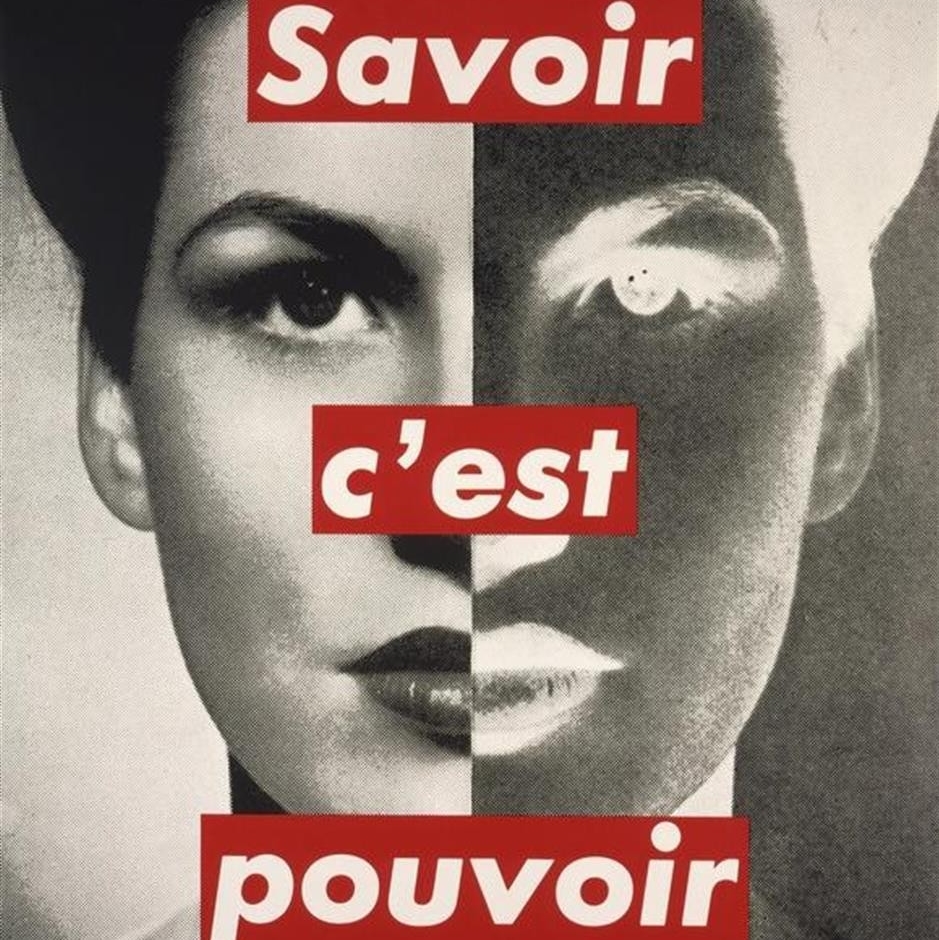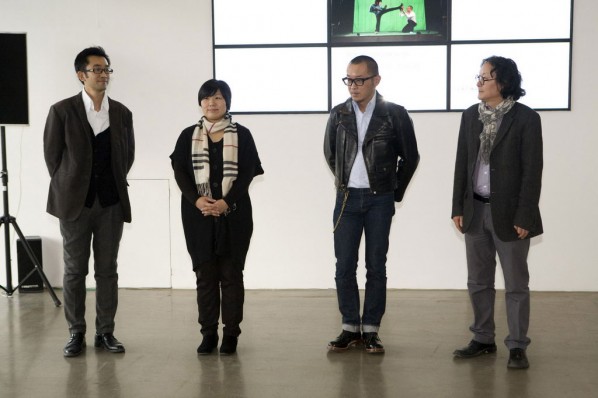
Opening Ceremony of Mengbo 2012 (from the left, vice director of Today Art Museum Gao Peng, the representive of Foundertype, artist Feng Mengbo,vice-president of CAFA Xu Bing
The grand opening of Feng Mengbo 2012, solo of Feng Mengbo, was held in Today Art Museum. Today Art Museum presented this show together with world leading luxury car brand Mercedes-Benz. This show will be presented on 2nd floor of Hall 1, Today Art Museum from 29 October to 12 November 2011.
Electronic games and music have been the main driving forces and inspiring sources for Feng Mengbo’s art making ever since 1992. As the first Chinese artist owing and using computer facility and technology, Feng Mengbo was always one moment earlier than others. Long before media art turned into the mainstream form of art, he had completed and exhibited many major works, including Private Photo Album (1997, The 10th Literature Exhibition), Q3 (1999, Asian-Pacific Triennial), Q4U (2002, The 11th Literature Exhibition), A Q (2004, Excellence Award for Interactive Art, Linz Electronic Art Festival) etc. His epic large electronic game installation – Long March: Restart – was collected by MoMA and was put on a solo show in PS1, New York. Also in 2010, his new work - Not Too Late – finished its tour supported by V&A Art Museum.
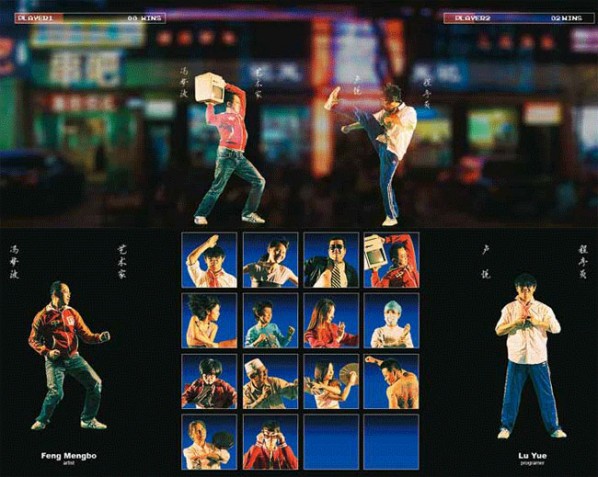
Feng Mengbo, "Mortal Kombat"--True Fighter, interactive devices(PC, three-screen display, dual joysticks, dual projector and sound system) in variable size
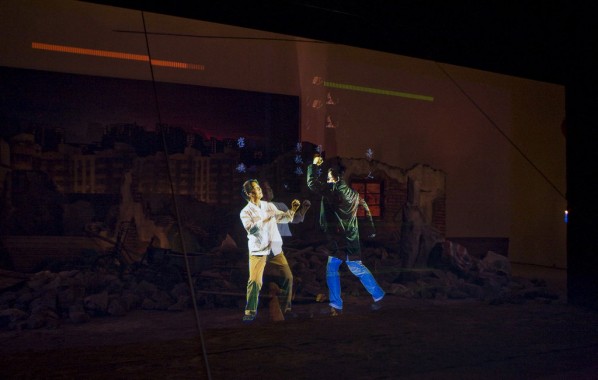
Feng Mengbo Mortal Kombat 01 True Fighter, interactive devices
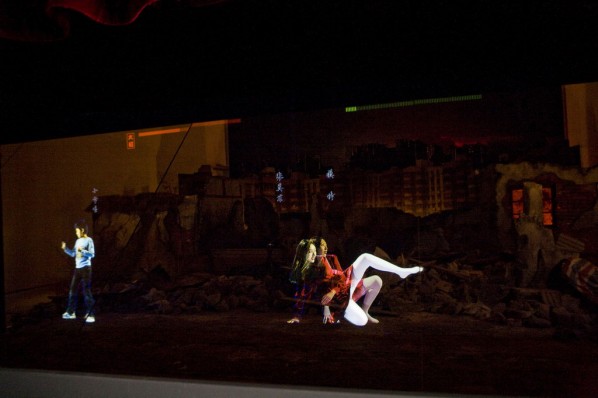
Feng Mengbo Mortal Kombat 02 True Fighter, interactive devices
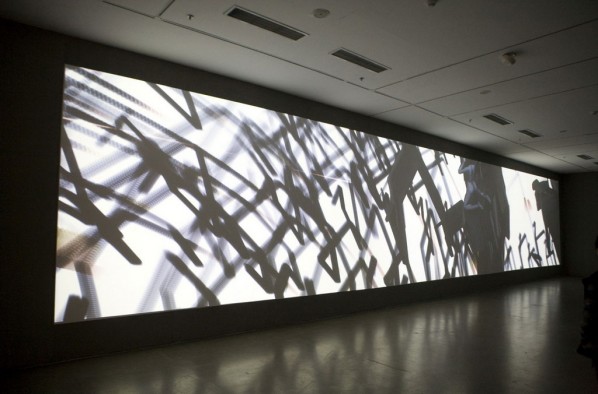
Q2012 by Feng Mengbo 01
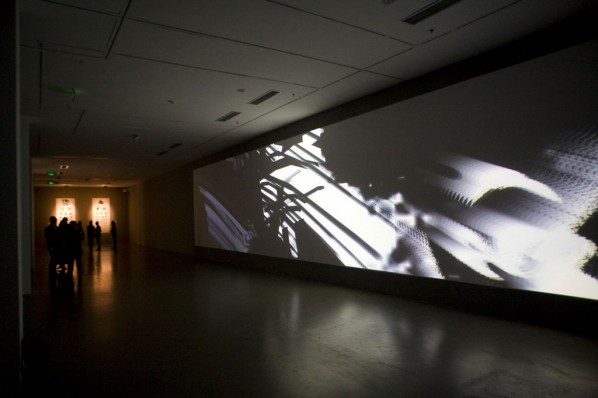
Q2012 by Feng Mengbo 02
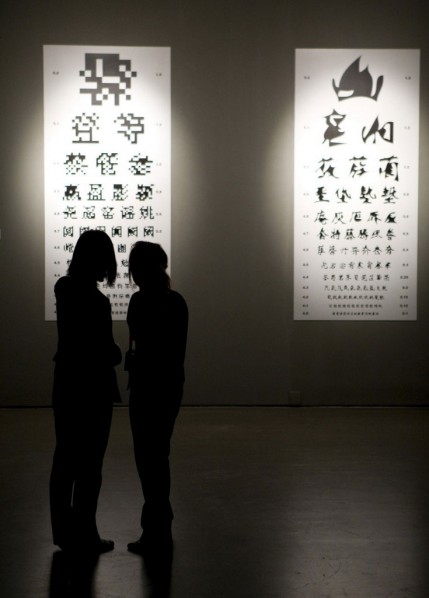
Eye Chart by Feng Mengbo
Feng created two fonts, Bitmap and Vector, and printed Eye Chart with them. He wants to quicken the weathering process with the aid of digitization, and makes the fonts only retain the most basic elements like those of stone rubbing inscriptions of ancient times, something between the readable and the unreadable. This is an aesthetic experiment of using software to set reading and writing experience exactly as the artist wishes. These two fonts will be released by Founder Electronics Co., Ltd. at the opening ceremony for Feng Mengbo 2012 and they are free for personal use.
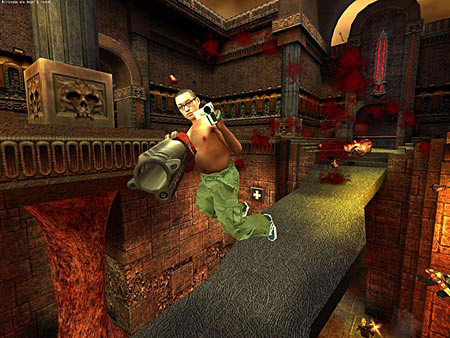
Q4U, 2001/2002. Interactive Internet performance (screen shot) © Image: Feng Mengbo - www.mengbo.com
Feng Mengbo is a Chinese video game artist who is based in Beijing. Combining his own experiences of growth in the Cultural Revolution with contemporary Western technology, Feng chooses the game medium to make work about contemporary Chinese society. Born in 1966, Feng graduated from the Design Department at the Beijing School of Arts and Crafts in 1985 and he received his mater's degree from the Printmaking Department at the Central Academy of Fine Arts in 1991. In an early work he recast the popular Nintendo character Mario as Mao Zedong. According to many Chinese scholarts, Feng Mengbo arost out the Political Pop movenment in China during the late 1980s and early 1990s. Following his aesthetic transformation from familial sentiment to cyber-warrior swagger, Feng's artistic identity was established internationally with his first interactive CD-ROM--My Private Album. His Q4U (2002) with multiple self-portrait avatars--video camera in one han and blazing rifle in the other becomes his typical image of video game.
Organizer: Today Art Museum
Opening: October 28, 2011, 4pm
Duration: October 29—November 12
Venue: 2nd floor exhibition hall of building 1


